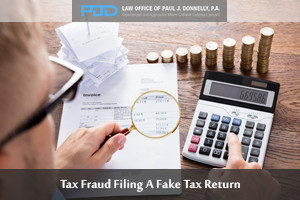- Federal Practice
-
State Practice
- Drug Crimes
- Possession of Cocaine in Florida
- Drug Possession
- Prescription Drugs
- MDMA – Molly Arrest
- Gun Crimes
- Sex Crimes
- Domestic Violence
- Violent Crimes
- Armed Robbery
- Car Jacking
- Homicide
- Manslaughter
- Violation of Probation
- Non-Florida Resident
- Theft Crimes
- Burglary
- Petty Theft/Shoplifting Charges
- Grand Theft Auto
- Receiving Stolen Property
- Misdemeanors
- Criminal Records
- Warrants
- DUI
- Multiple DUI Charges
Does this ring a bell? You have only lived in Miami, yet if you contact the IRS about an issue with taxes, the representative asks whether you have ever lived in Massachusetts.
So, did you ever live in Massachusetts? If not, that is to say, you are completely sure you do not know anyone in Massachusetts, there is a great chance that someone in Massachusetts knows your social security number (SSN) and has used it on your behalf to get a tax refund.
Why You Need to Worry
Well, this has happened to many people and it can certainly happen to you. But when this kind of fraud occurs, it is just the beginning of a terrible headache that includes, among others,
- Speaking with your designated tax advocate with the IRS.
- Applying for a Social Security wage report
- Filing a police report
Experts strongly believe that frauds associated with tax returns are increasing problem in the United States. Identify protection companies are witnessing more and more tax return scams every day.
But what exactly does a tax return scam mean? A tax return scam is when an individual files a return very early in the day on behalf of someone else so they can reroute or divert the IRS’ refund.
A report from the Federal Trade Commission reveals that the number of tax return scams has significantly risen.
And as a matter of fact, the Internal Revenue Service predicts that the tax-refund fraud will soar again this tax season, and hit a staggering $21 billion by the end of 2016, from just $6.5 billion about two years ago.
Why Are Fraudsters into Tax Returns?
Tax return fraud is today becoming very popular simply because it has high returns on investment compared to, let’s say, credit card fraud.
If the fraudsters target individuals who are extremely wealthy, then they stand a chance of gaining thousands of dollars if not millions in tax refunds.
But no one really has to fall prey to tax return scams. The following are some important tips you should take to heart:
Do not reply to emails that claim to come from a representative in IRS. IRS never communicates to taxpayers in such a way.
Fake IRS e-mails are a common “phishing” trick to make you reveal your sensitive personal information.
Immediately hang up the phone is anyone calls you pretending to be a representative from the IRS and is asking for sensitive personal data such as a bank account routing number.
The IRS never calls taxpayers not unless they have once written to you requesting a phone number to either call you or your tax preparer.
Always be extra careful when using Web-based tax preparation programs because they are never safe compared to downloaded tax preparation software.
If, after filing your tax return, you receive a letter from the IRS saying that someone else has already filed a return using your Social Security number (SSN), immediately file the IRS Form 14026.
It is equally important to either file an Identity Theft Affidavit with the Federal Trade Commission or a report with the police so that your complaint with the IRS can be processed.
If you or your loved one has been accused of tax fraud and are seeking legal advice and representation, the Law Office of Paul J. Donnelly will take you through the whole process with skill and expertise.
For you to ensure the best possible outcome, it is important to get legal advice as soon as possible and Paul J. Donnelly’s initial advice and assistance is absolutely free of charge.
Call us today at 305-757-3331. Do not gamble with your livelihood and freedom.

